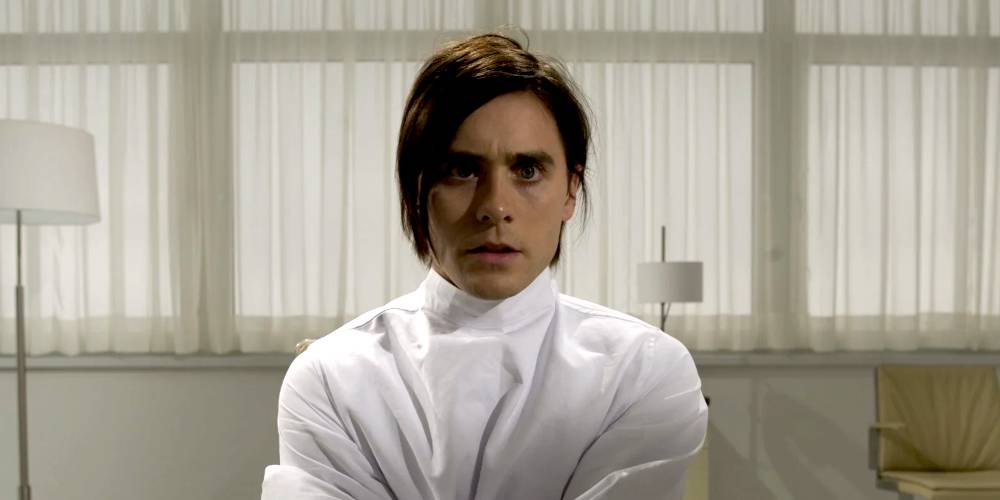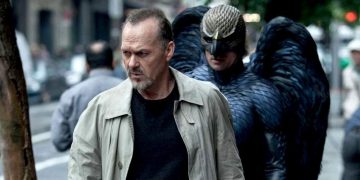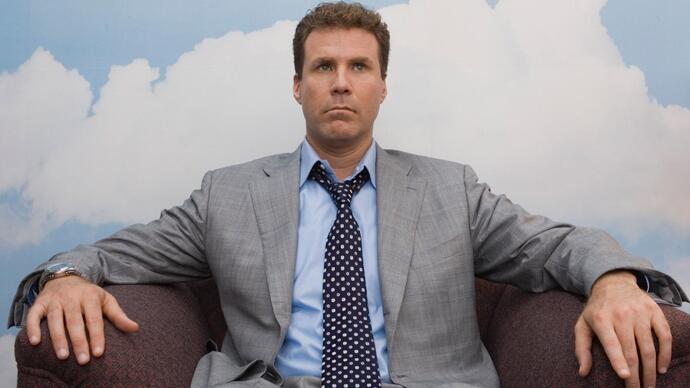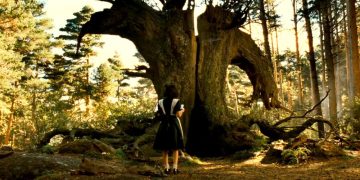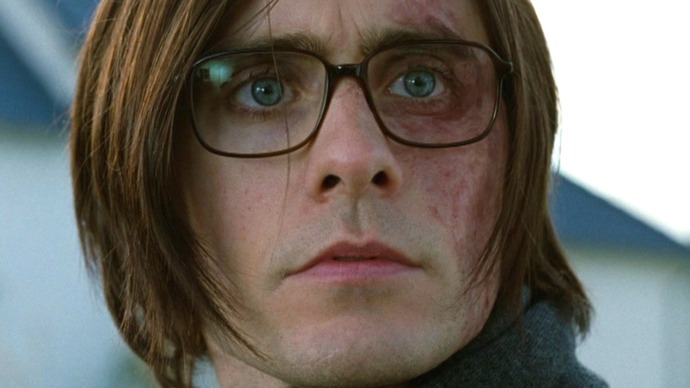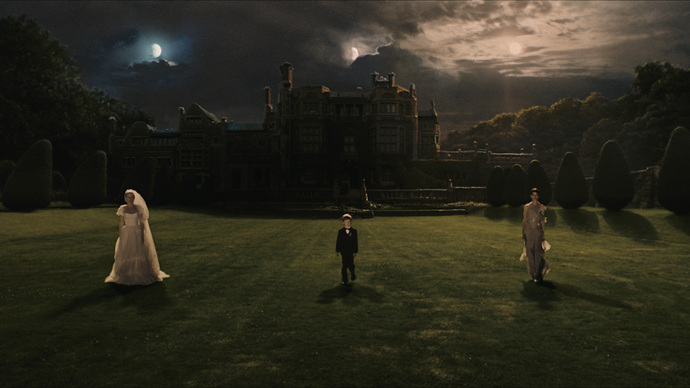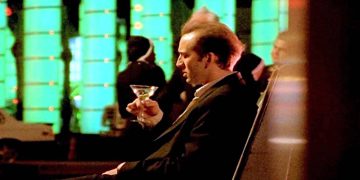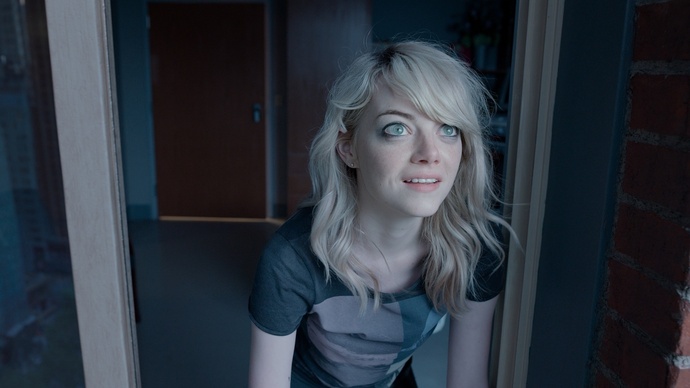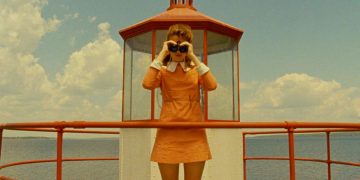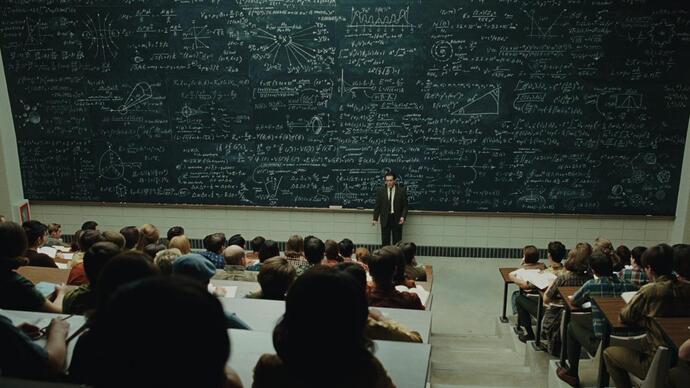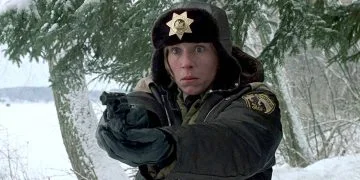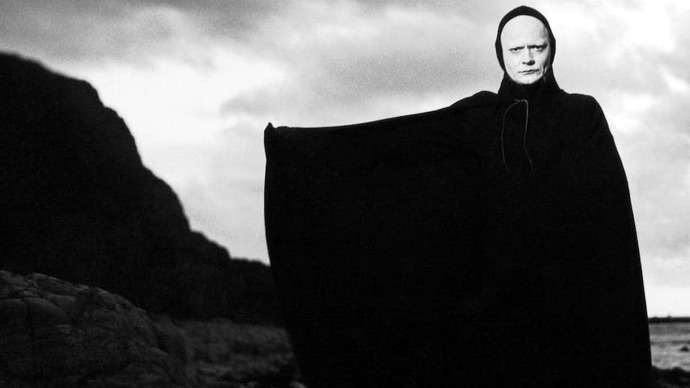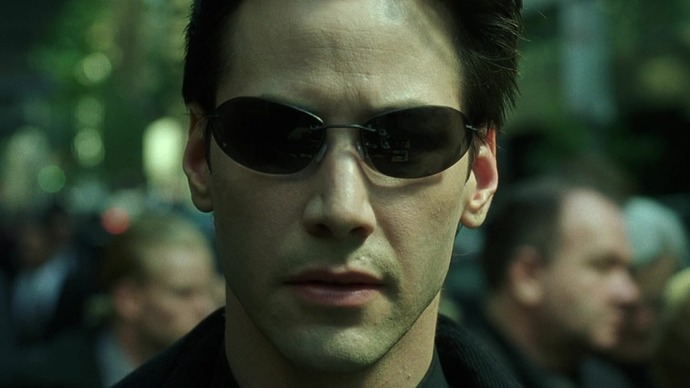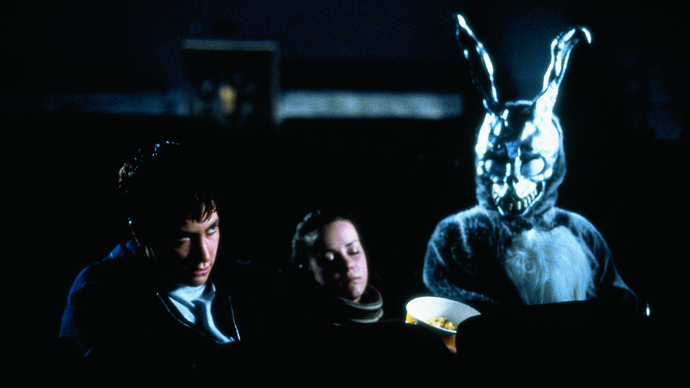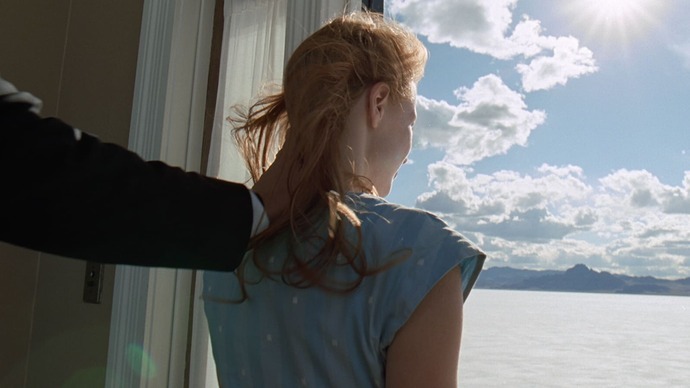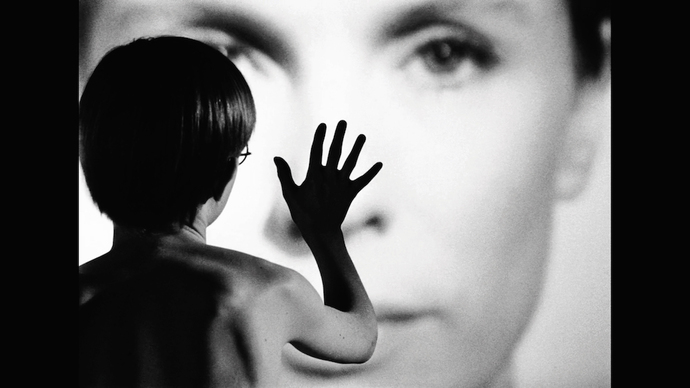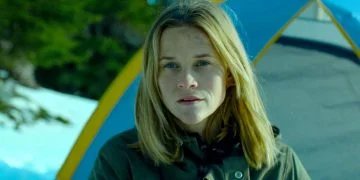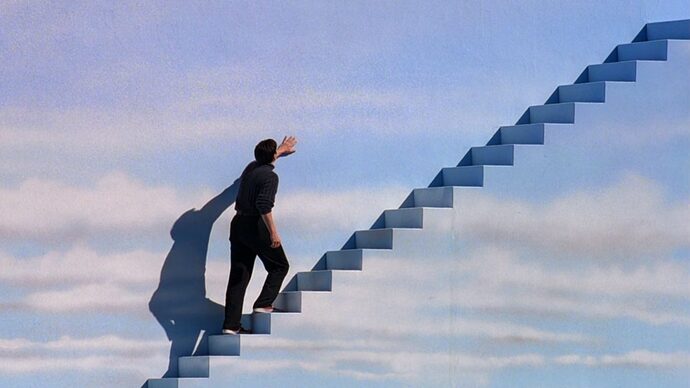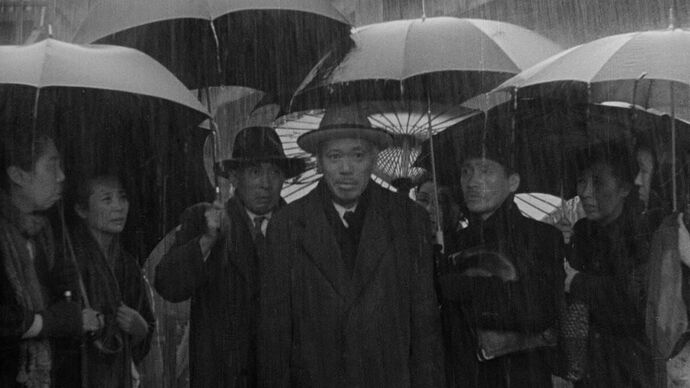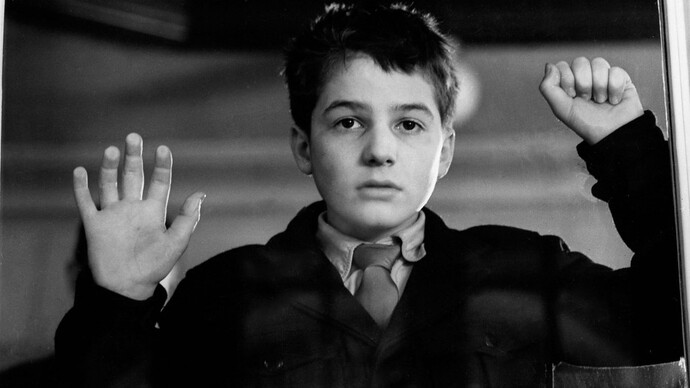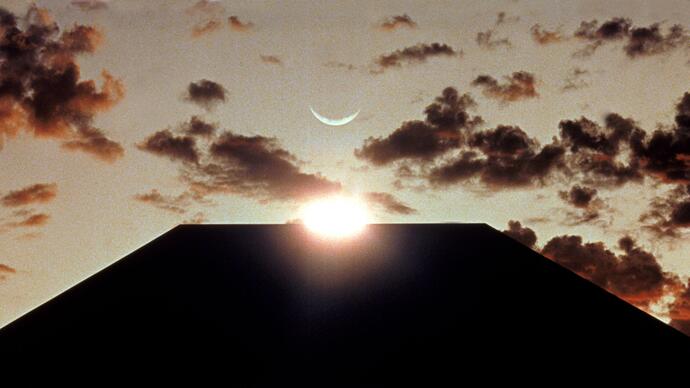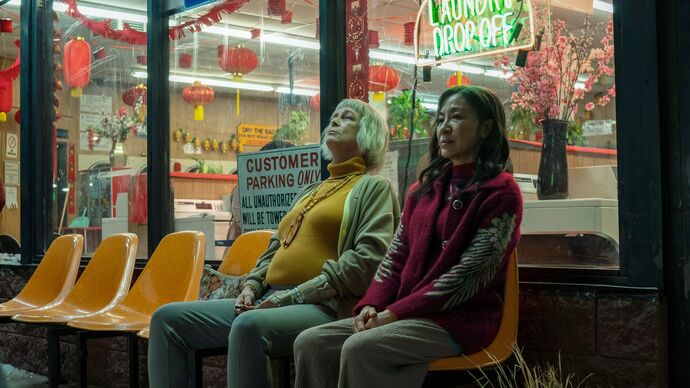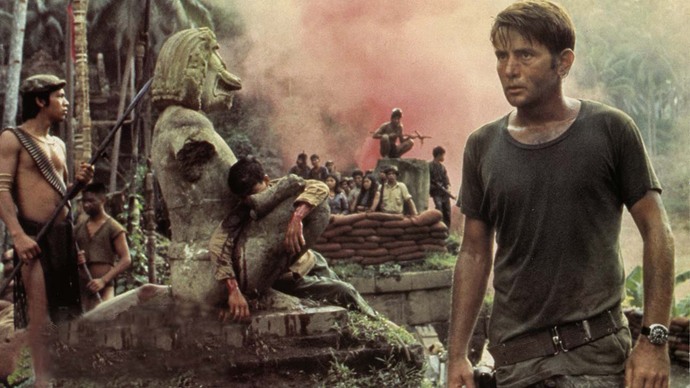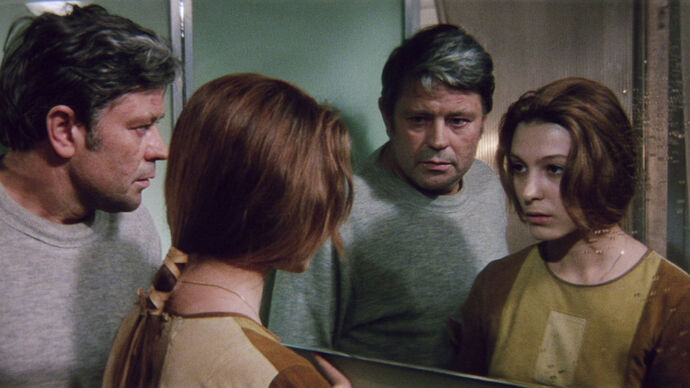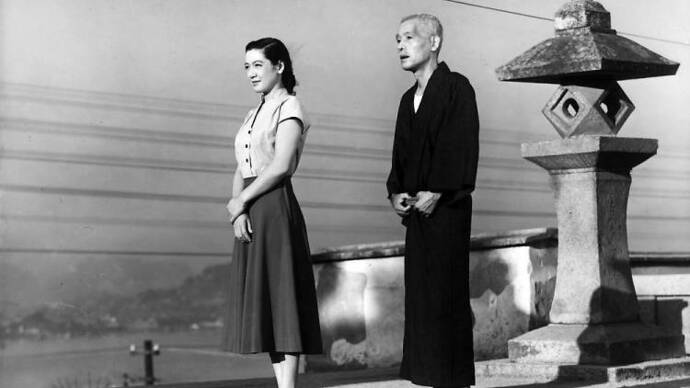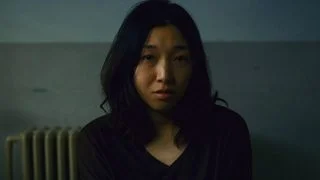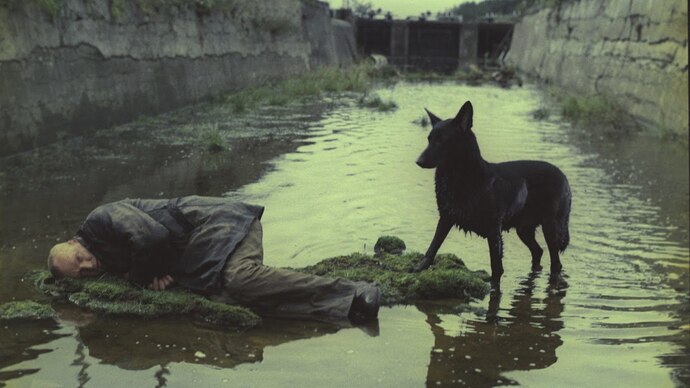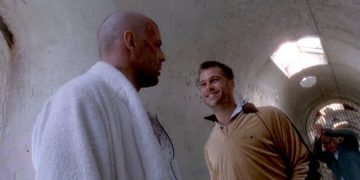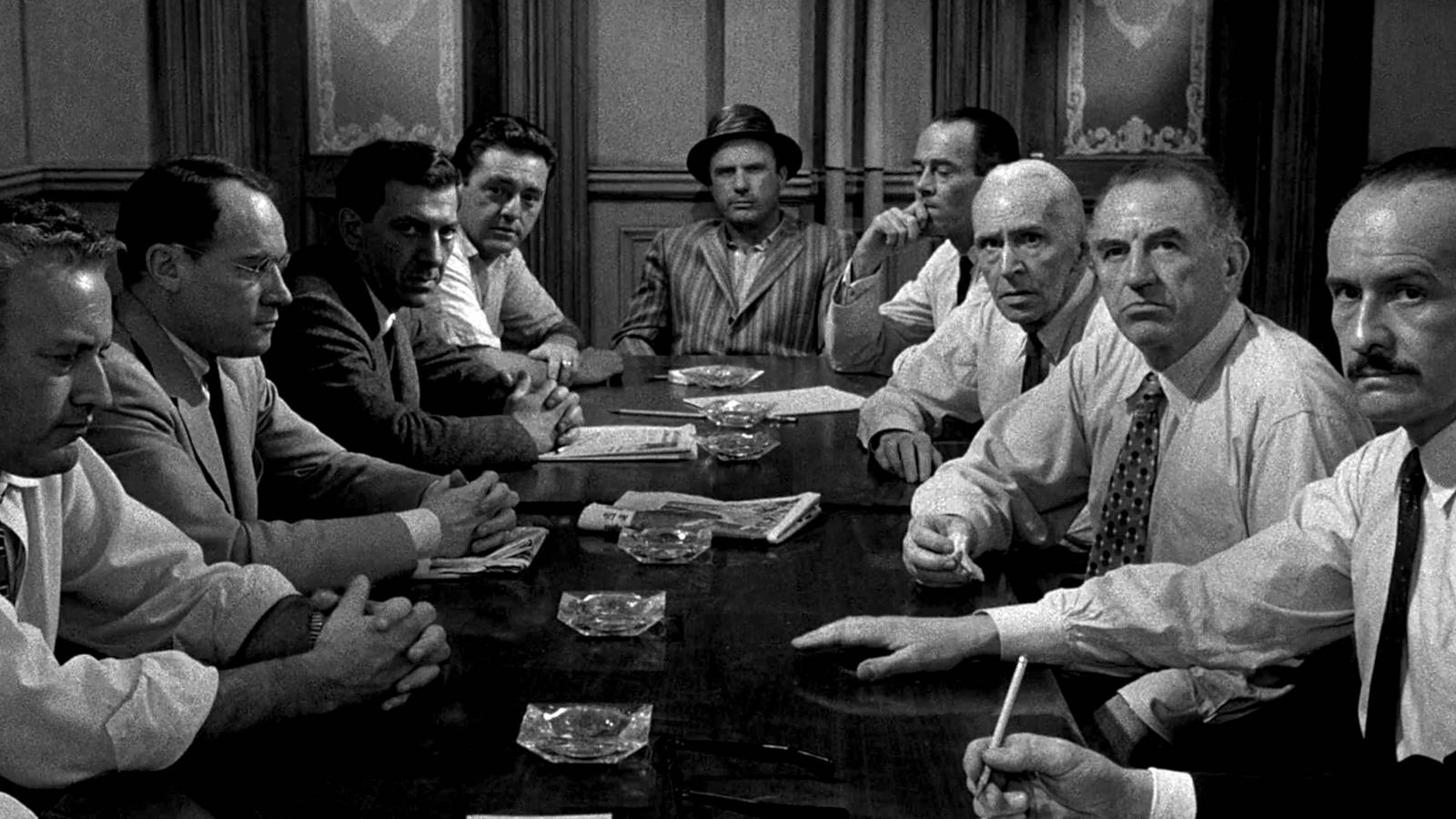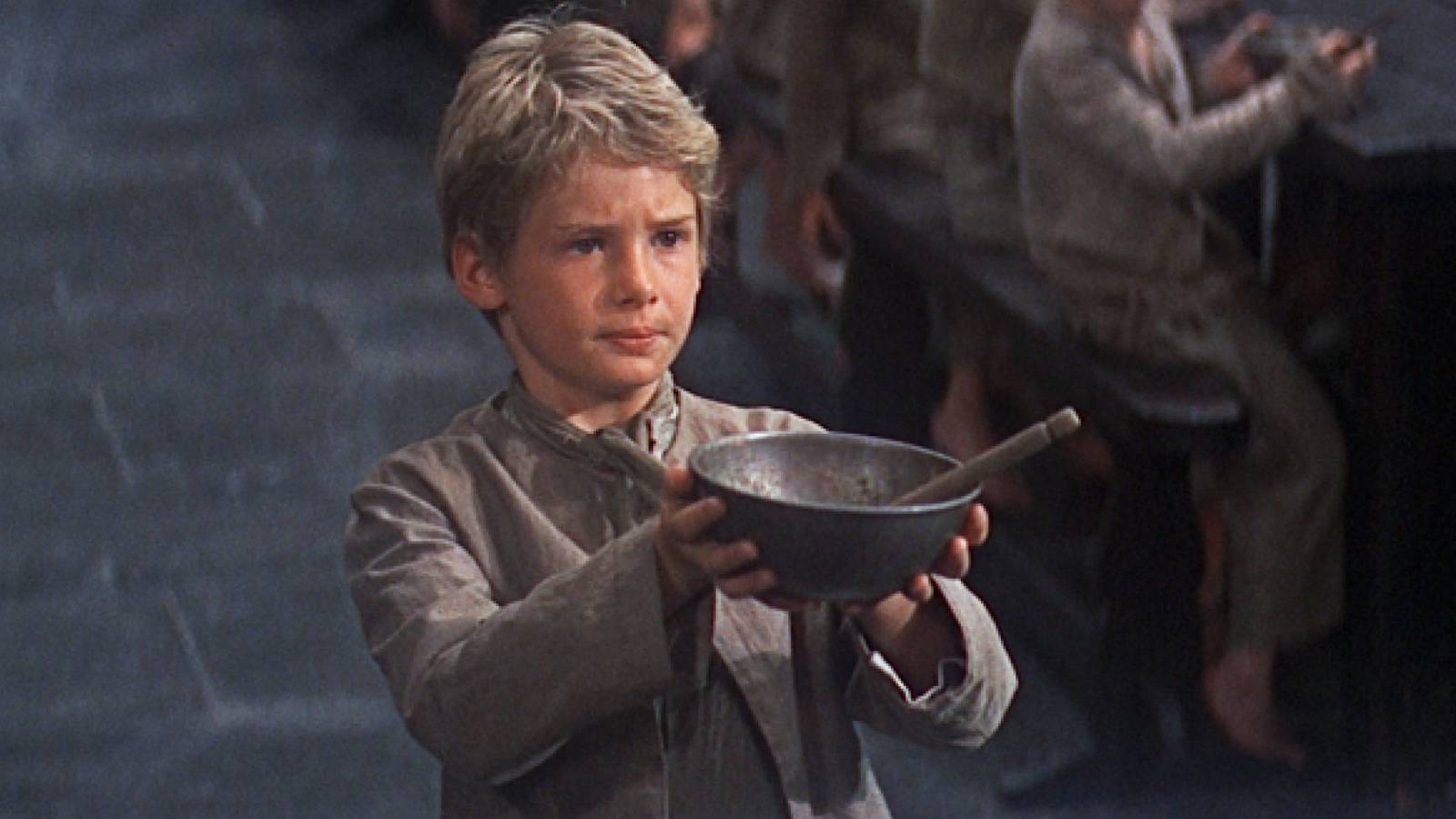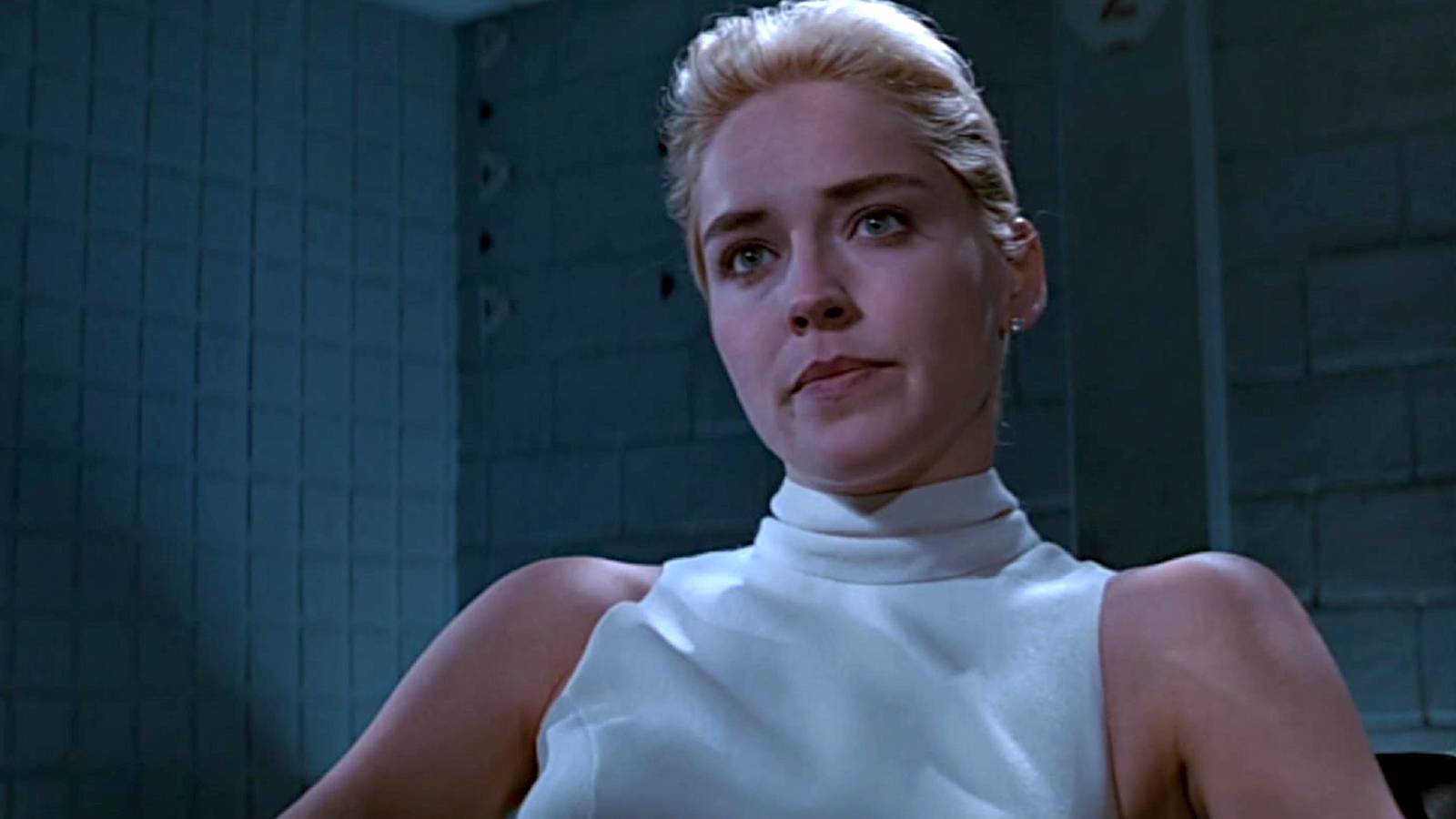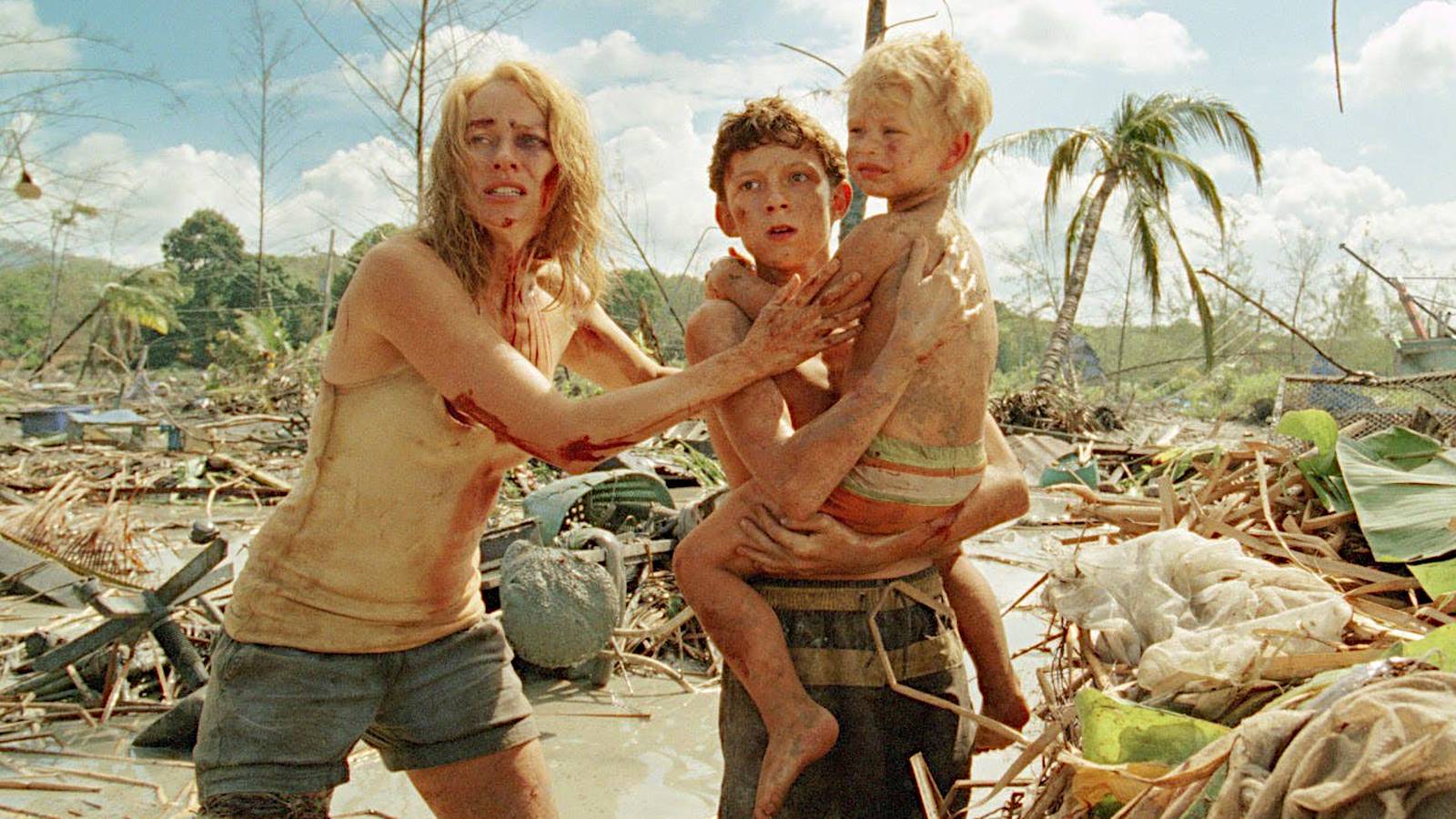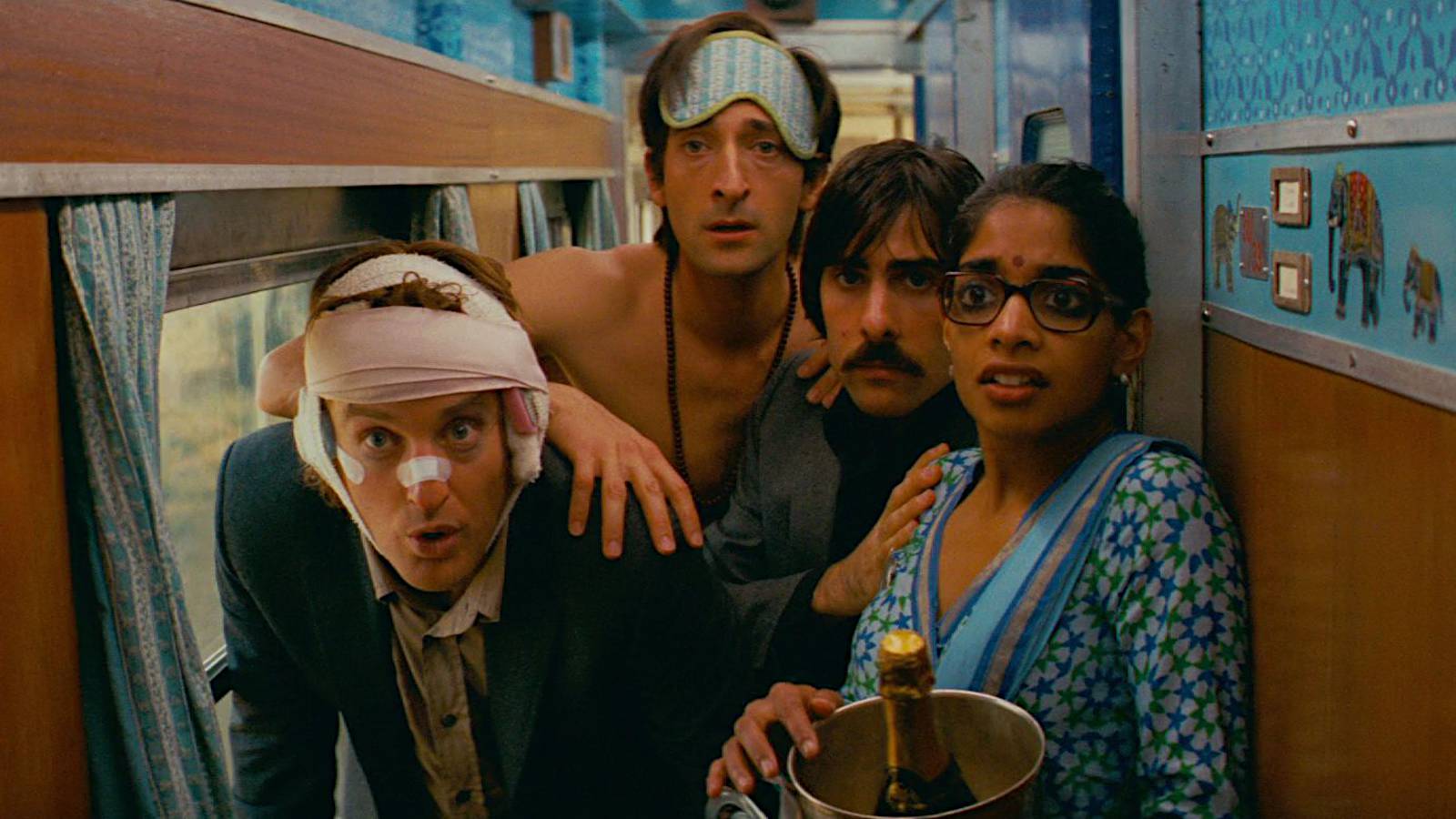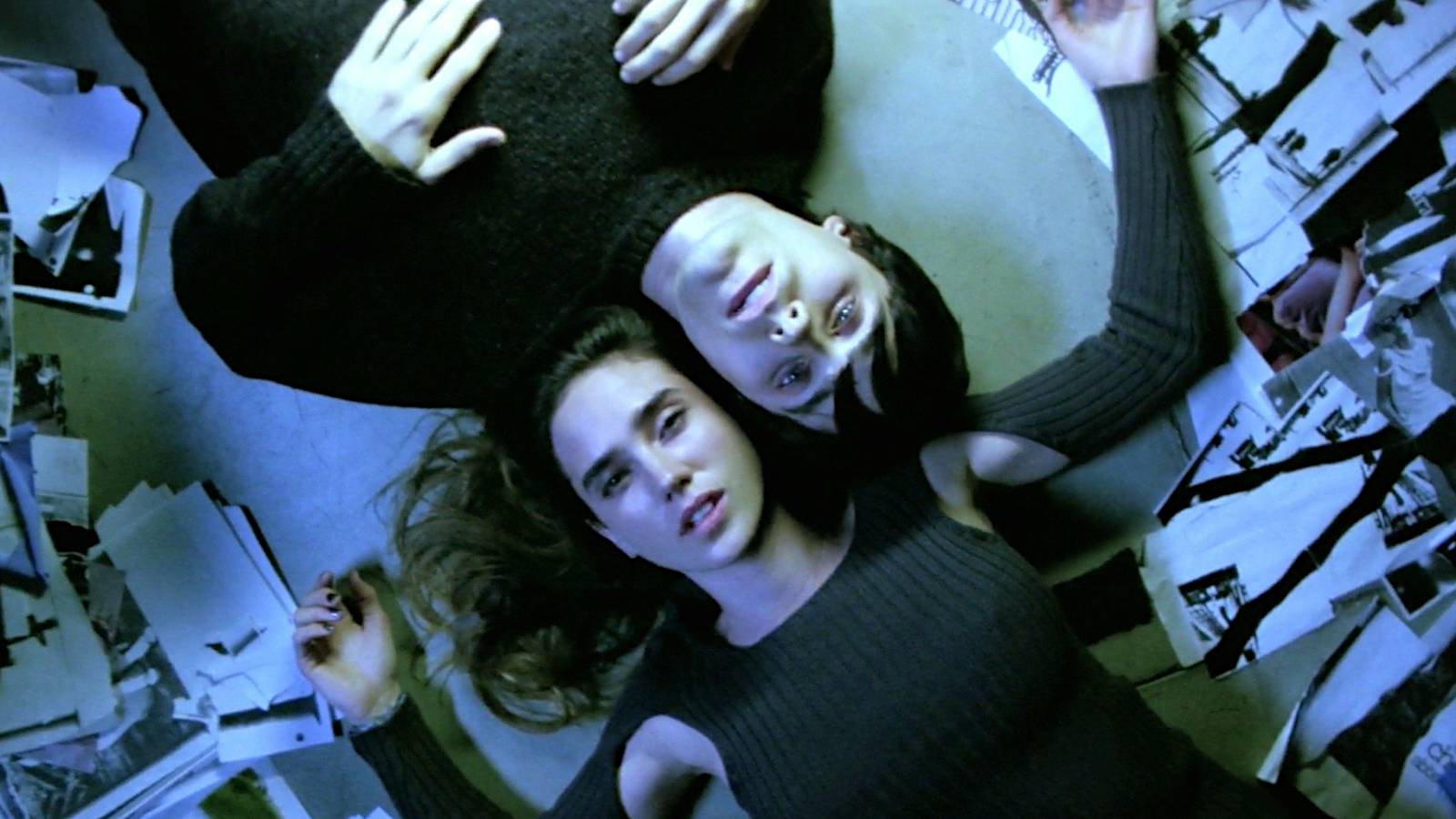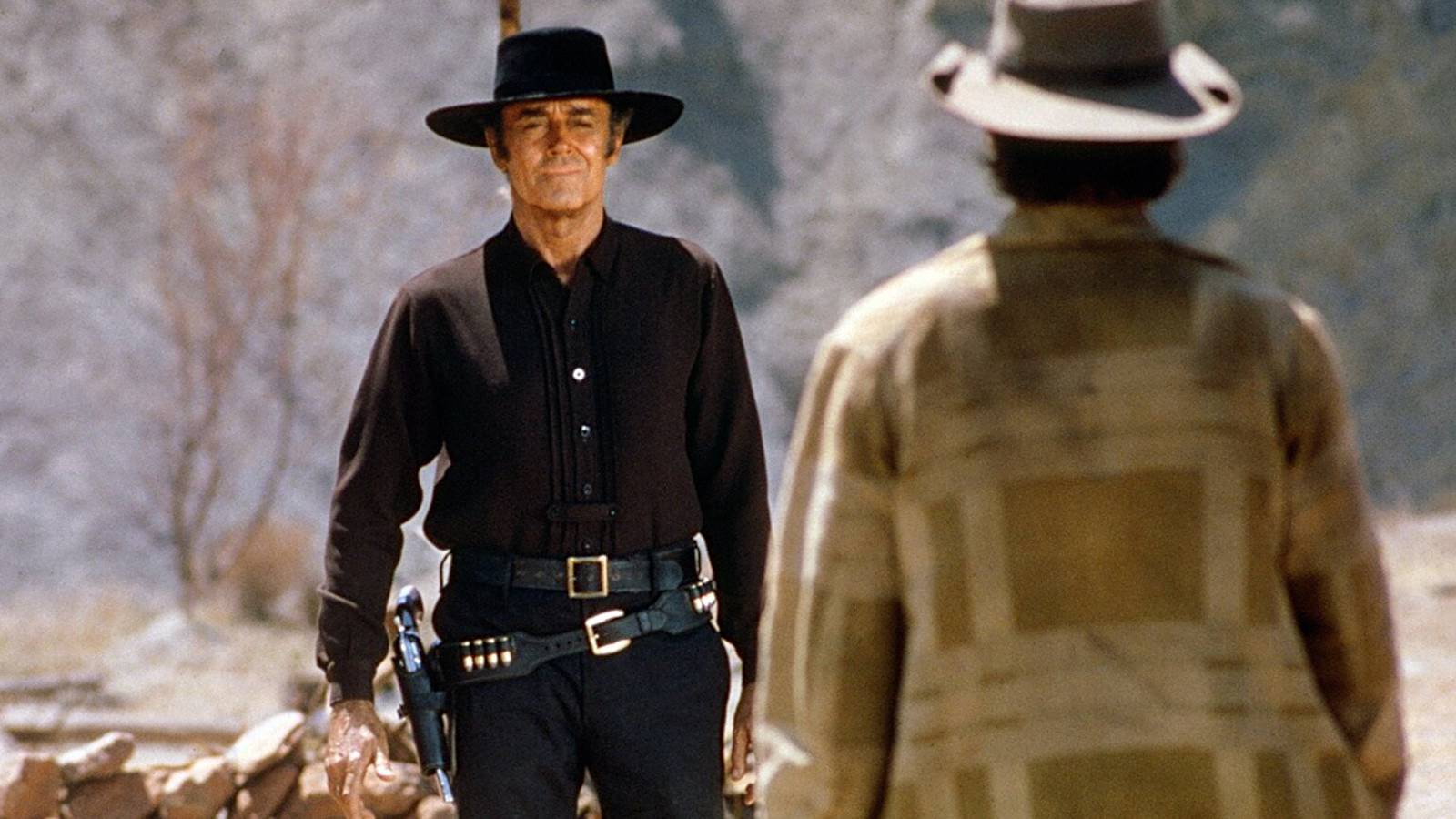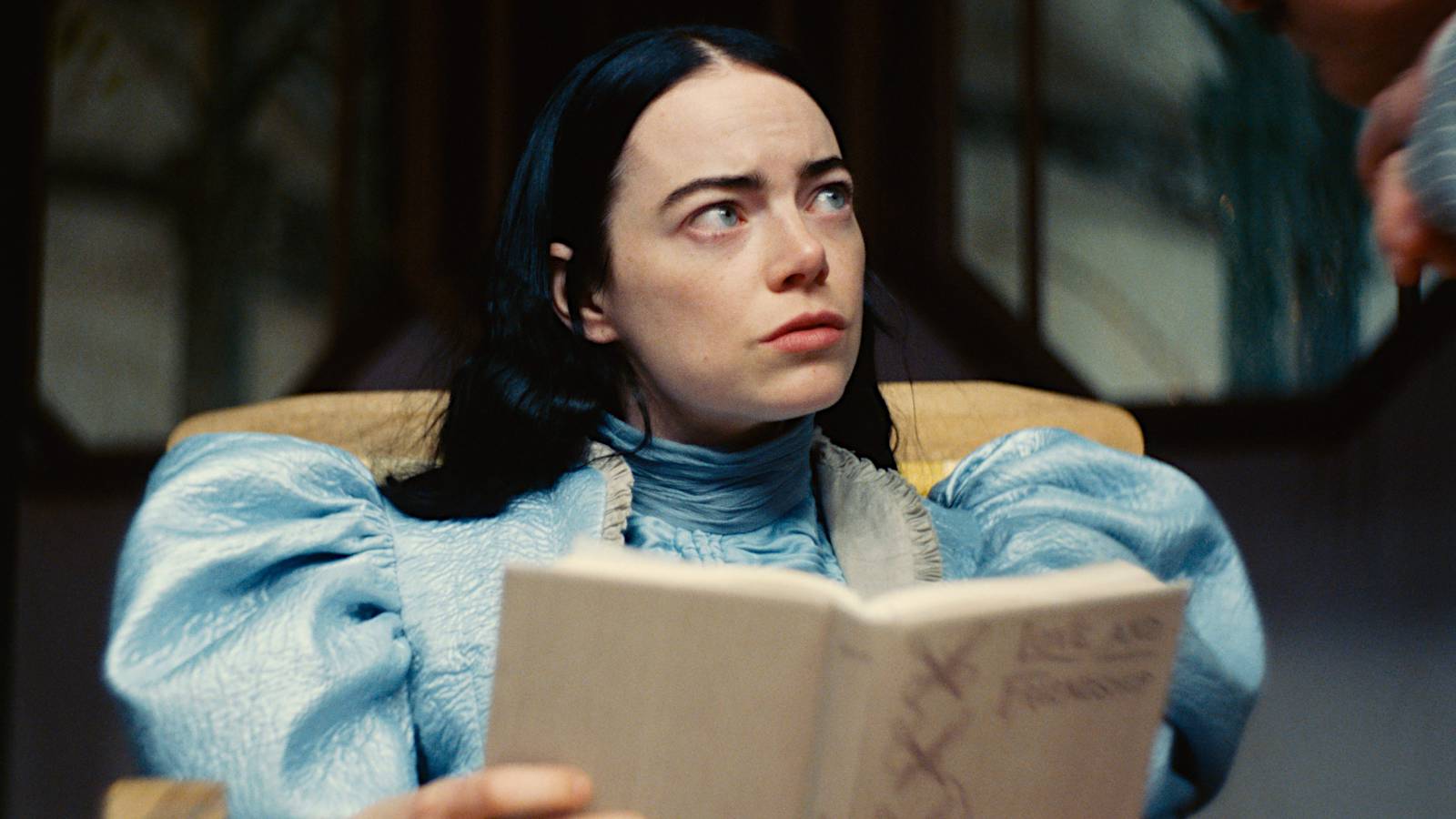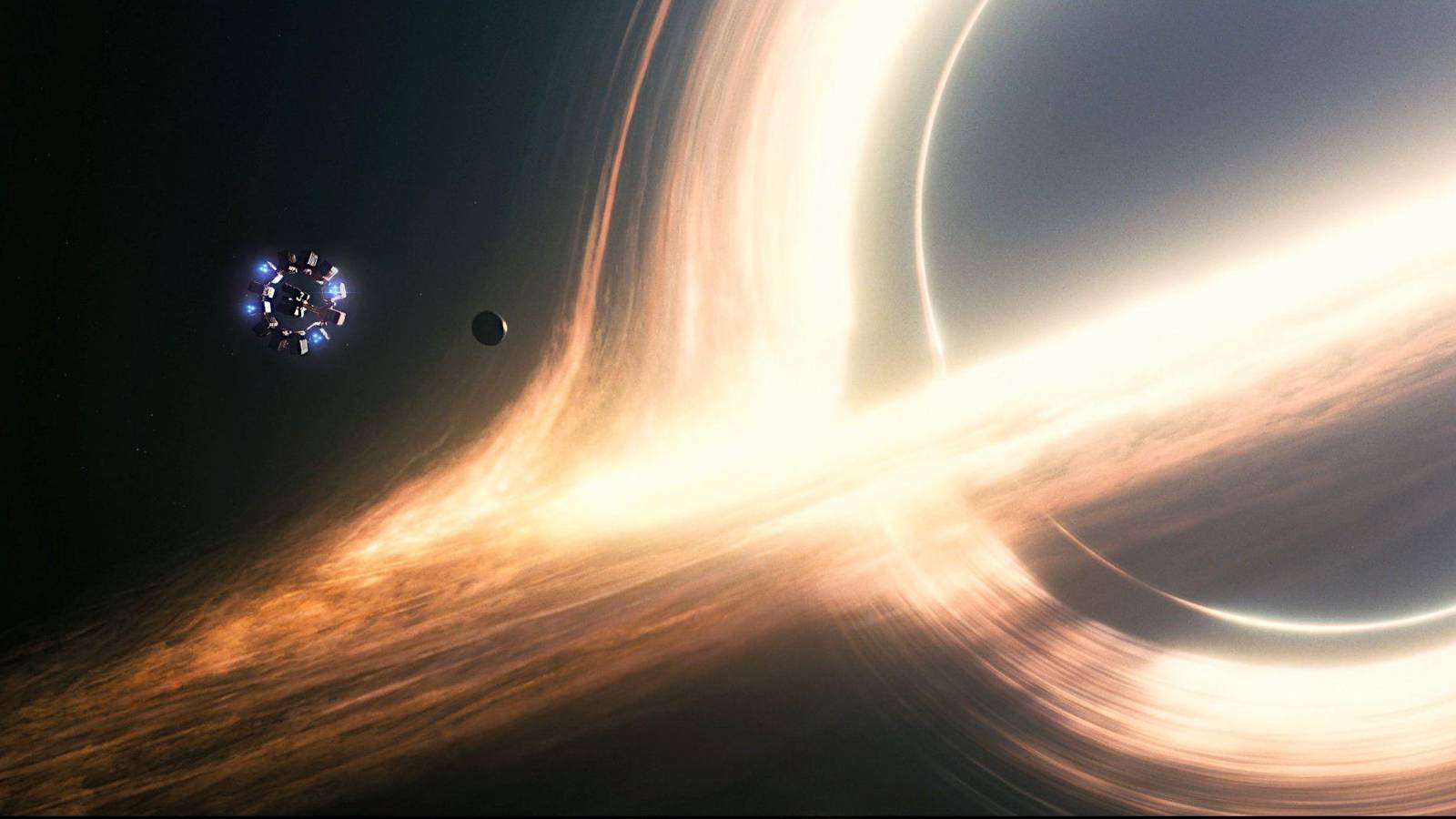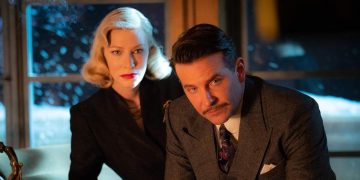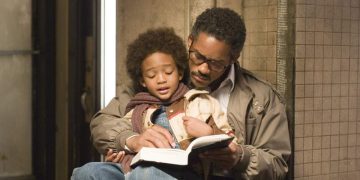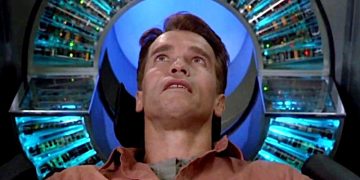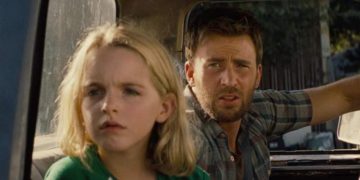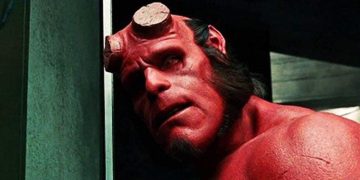20. I’m Thinking of Ending Things (2020)
Like many films on this list,I’m Thinking of Ending Thingsmight end with you popping over to YouTube and searching for an “ending explained” video. It’s engaging, but it can be a bit of a head-scratcher.
The snow-dusted square aspect ratio of pretty imagery gives way to a dingily lit room where a woman (played by Jessie Buckley) is thinking of ending her seven-week relationship.
Writer/director Charlie Kaufman is known for tapping into the meta, the existential, and the psychological with past films likeBeing John Malkovich,Adaptation, andEternal Sunshine of the Spotless Mind. He does it again here in this Netflix drama that careens into a huge plot twist!
Related:The Best Midlife Crisis Movies, Ranked
19. Stranger Than Fiction (2006)
Stranger Than Fiction, the title of which comes from a quote by Lord Byron, isn’t like Will Ferrell’s other slapstick Hollywood movies. This one’s a drama-infused fantasy that showed everyone that the actor was capable of more than justAnchorman.
Will Ferrell stars as an IRS agent named Harold Crick, who starts hearing the voice of an Englishwoman narrating his day-to-day life—a life that’s, apparently, about to end. (No, Harold isn’t schizophrenic.)
Emma Thompson plays the author who’s writing a novel about him, reading out his movements and thinking that Harold is actually a product of her imagination.
As surreal as they come,Stranger Than Fictionis a postmodern take on creative imagination, interconnectivity, and identity.
Related:The Best Magical Realism Movies That Mix Fantasy and the Real World
18. Mr. Nobody (2009)
Mr. Nobodyfeels like a movie made up of lots of little movies. The scenes are like individual stories that feel quite like a series of grand, complex paintings lined up in a nonlinear row.
Some critics found this to be its unique high point while others saw it as its fractured downfall. Both sides, however, agreed thatMr. Nobodyis a mind-bending journey that forces viewers to engage fully.
The general gist of the plot follows Nemo (played by Jared Leto), who’s being interviewed as the last mortal on Earth. Beyond that,Mr. Nobodyis an unpredictable, dazzling convergence of epochs that asks the unanswerable questions of the universe.
Related:The Best Movies About Immortals and Immortality, Ranked
17. Melancholia (2011)
Ah, a countryside castle wedding. How perfectly romantic! Shame about the impending apocalypse, though…
Most people aren’t aware of it, but Justine (played by Kirsten Dunst) grows obsessed with the rogue planet Melancholia that’s inching closer to Earth but apparently not meant to collide, according to scientists.
The homonymous title also refers to Justine’s sinking clinical depression that causes her to drift through the limbo of a nocturnal world. Outer space is, after all, deeply existential to many.
It’s this astrophysical cross path that Lars von Trier explores inMelancholia, which is split into two enigmatic halves but wholly inspired by Von Trier’s own experience of mental illness.
Related:The Best Movies About Depression and Hopelessness
16. Birdman (2014)
Birdmanis more than just a dramedy about showbiz or a technically experimental film that was entirely shot as a single take. It’s also a surprisingly deep soul-search for meaning.
Michael Keaton stars as Riggan, an aging actor who’s having a midlife crisis of career and identity, which naturally includes existentialism.
Having lost himself in dwindling fame, Riggan tries clinging to his next part in a new Broadway play, but he’s stalked by the memory of his past superhero role of Birdman. (A meta reference to Keaton’s Batman.)
Related:Great Movies With the Best Cinematography, Ranked
15. A Serious Man (2009)
Larry Gopnik (played by Michael Stuhlbarg) has spent his whole 1960s suburban life in passivity. People use and abuse him, and things just seem to, well,happen. This leaves Larry with a constant question on his lips: “What’s going on?”
Directed by the Coen brothers, everything comes to a head inA Serious Manin their iconic style of domino eccentricity as Larry goes looking for answers in rabbis and religion rather than himself.
A Serious Manevaluates every interpretation of life, every piece of (often clichéd) advice, and every way of coping with existential questions. The conclusion? Well, there is none.
Related:The Best Black Comedy Movies With Darkly Morbid Humor
14. The Seventh Seal (1957)
Existentialism is all about asking questions. It’s a thirst for knowledge, for a silver bullet answer to what this whole life thing is about. Unfortunately, God tends to be silent in the face of these questions.
Even so, it doesn’t stop the medieval knight Antonius Block (played by Max von Sydow) from asking those tough questions.
His search for truth amidst Crusade cynicism brings Antonius face-to-face with the personification of death, where they famously play a game of chess by the sea. Directed by Ingmar Bergman, this chess game with Death is a simple yet powerful metaphor for life.
Related:The Best Movies About the Medieval Times, Ranked
13. The Matrix (1999)
The Matrixmade huge waves at the turn of the millennium, and its ripple effects can still be felt today. Just search up terms like “glitch in the matrix” or “the red pill,” which are alive and well today.
Keanu Reeves leads as Neo, who’s given a choice between taking the red or blue pills, which act as symbols of consciousness. You can either live a life of ignorant “bliss” while rigged up to the Matrix, or you can wake up and see reality for what it really is.
The Matrixbecame the definitive nickname for simulation theory and/or spiritual awakening, all wrapped up in green-tinted cyberpunk imagery that’s absolutely beautiful when viewed in 4K.
Related:The Best 4K HDR Movies That Are Drop-Dead Gorgeous
12. Donnie Darko (2001)
Donnie Darko (played by Jake Gyllenhaal) is plagued by hallucinations of a giant bunny called Frank, who warns him that the world will end in a little over 28 days.
Like most movies with an unstable protagonist, it’s hard to tell if Frank is just a product of schizophrenia or actually real and telling the truth. By the end ofDonnie Darko, we aren’t much the wiser.
What could have easily veered into a predictable plot twist instead leaves us scratching our heads and flocking to forums to see if anyone can decipher the meaning behind it all. “Destruction is a form of creation” is the main existential takeaway.
Related:The Best Movies With Imaginary Friends and Characters
11. The Tree of Life (2011)
Most religions and cultures have their own version of the sacred tree of life—usually referring to the biological life cycle and/or the afterlife—that creaks with ancient, divine wisdom.
In that sense, nothing could be more existential than Terrence Malick’s experimental art featureThe Tree of Life, as it’s literally about the creation of existence! (But disguised as a soppy 1950s coming-of-age drama.)
The Tree of Lifetakes a graceful, benevolent, and spiritual approach to the science of Earth’s origins and the cruelty of human nature, looking into eschatology and theodicy with an all-star cast.
Related:Toxic Masculinity in Movies: Great Examples, Explained
10. Persona (1966)
Ingmar Bergman’sThe Seventh Sealwas already included above, but his lesser-known moviePersonais even more existential. Controversial upon release, the avant-garde drama could even be considered horror.
Raw minimalism, morbid themes, and philosophical meditations on death are what mark Bergman as a leading figure in arthouse cinema and film history.
Persona, which blurs the line between two women’s identities, is a Jungian examination of the self through surrealist imagery. It would later inspire classics likeVertigoandMulholland Drive.
Related:The Best Movies About Self-Discovery and Finding Yourself
9. The Truman Show (1998)
The Truman Showfeatures something similar to the simulation theory ofThe Matrix, except simplified into something brighter, funnier, and more romantic, but no less intelligent.
The genre-defying sci-fi satire is about a man named Truman (played by Jim Carrey) who’s quite literally living in a simulation—a TV simulation that’s broadcast live every day. Without him knowing, of course.
But when a set piece falls through, Truman starts to notice the product placements and extras around him.
The sky stairs at the end of the world serve as a potent symbol of illusion, liberation, and the nature of reality, pushing us to take that faithful leap into the unknown ourselves.
Related:The Best Metaphorical Movies With Deeper, Hidden Meanings
8. Ikiru (1952)
Famed Japanese director Akira Kurosawa is known for many films, likeRashōmon,Seven Samurai, andYojimbo. It’s a shame, though. He’s made so many great movies that some of them end up overshadowed.
Such is the case withIkiru, which is a more uplifting take on existentialism than many of the other films on our list.
Inspired by Leo Tolstoy’sThe Death of Ivan Ilyich,Ikiru(which means “To Live”) follows a bureaucrat (played by Takashi Shimura) whose terminal illness prompts him to see the beauty in all things, to share his love, and, well, to live. He’s like an existential version of Scrooge.
Ikiruwas remade by Oliver Hermanus into a British movie calledLiving, which actually turned out well and succeeded at instilling viewers with a renewed sense of purpose—but the original still has the edge.
Related:The Best Japanese Movies of All Time, Ranked
7. The 400 Blows (1959)
Existentialism isn’t confined to those who are having a midlife crisis. Young adults, teens, and even kids can experience it, too! And that’s what we see inThe 400 Blows, François Truffaut’s landmark drama that triggered the French New Wave.
Antoine Doinel (played by Jean-Pierre Léaud) is coming-of-age in a family and society that either ignores or constrains him. His curiosity and youthful exuberance are constantly shut down, so he decides to take on the world by himself.
This semi-autobiographical character study is shot in a naturalistic style from the viewpoint of a child, with haunting long takes that echo the film’s hollow existentialism.
Related:The Best Young Adulthood Movies About Teens Coming of Age
6. 2001: A Space Odyssey (1968)
The gravitas, innovation, scale, and darkness of Stanley Kubrick’s filmography is perfect for an existential movie.
2001: A Space Odysseyis often considered his best work—abstract yet hyperreal, and repeatedly referenced in media.
The epic space opera attempts to look at the universe as a whole, all while dealing with themes of multi-dimensionality; creation, evolution, and apocalypse; alien life; destiny; and the dangers of artificial intelligence.
The kaleidoscopic Star Gate sequence is particularly existential, and the whole film feels like a response to the works of Nietzsche and Homer.
Related:The Best Movies About Robots and Artificial Intelligence
5. Everything Everywhere All at Once (2022)
Everything Everywhere All at Oncewill make you laugh, cry, and question reality… all at once. Hotdog fingers, world-destroying bagels, and glitter-gun kung fu make for a very modern and entertaining 2+ hours.
But it also feels like an enlightening—if confusing—acid trip that marries absurdist comedy with philosophical science fiction.
Evelyn (played by Michelle Yeoh) is a struggling laundromat owner who finds out that she can jump between versions of herself across the vast multiverse of timelines. With this ability, she must save the world from an evil, alternate version of her daughter.
While philosophers, scientists, and filmmakers have been deciphering for millennia the meaning of life and how to live it, the Daniels hit the nail on the head with one sentence: “Just be [a rock].”
Related:The Most Inspirational Movies That Celebrate Life and Joy
4. Apocalypse Now (1979)
Apocalypse Nowisn’t your usual war movie. It stands out for its surreal and hallucinatory wrappings that voyage into the underworld.
Captain Willard’s (played by Martin Sheen) campaign into Cambodia to seek out an AWOL officer during the Vietnam War is as much a psychological journey as it is a physical one.
Once found, the god-like Colonel Kurtz (played by Marlon Brando) is always lingering in the shadows, reeling off existential monologues on making a friend out of horror.
In the lawless land of war, humans become capable of the ghastly inhuman. Is this something that lies within all of us? Or is it born from something more ethereal?
Related:The Best Vietnam War Movies of All Time, Ranked
3. Solaris (1972)
Andrei Tarkovsky is a Russian poet of cinema, forever delving into the dreamlike passages of nature, space, memory and the mind.
Soviet sci-fi films of the 1970s were something else, almost an entire niche aesthetic unto themselves—an aesthetic that comes into full bloom in Tarkovsky’s thematicSolaris.
Based on Stanisław Lem’s 1961 novel,Solaristakes place on a watery planet that turns human inhabitants psychotic and suicidal. A psychologist is sent to investigate the crew reports and finds himself in a lonely ocean of ghosts and hallucinations.
Suffice it to say, existential dread pervades the film’s long shots. (Trust me when I say to watch the original over the Hollywood remake!)
Related:The Best Russian Movies of All Time, Ranked
2. Tokyo Story (1953)
Tokyo Storytakes place on the heels of World War II, centering on an elderly couple who leave the city of Onomichi to visit their children in post-war Tokyo.
It sounds like a dull plot, but the lack of explosive action gives director Yasujirō Ozu room to explore the transcendental. Existentialism rears its head as the family unit breaks down in a broken-down world, a society damaged by massive global conflict.
Tokyo Storyis painful and emotional rather than metaphysical, and Ozu shows us how the magnitude of silence trumps the power of dialogue.
Related:The Best Movies Set in Tokyo, Ranked
1. Stalker (1979)
Building onSolaris, Andrei Tarkovsky presents a barren, soulless, and materialistic dystopia in his even-better masterpieceStalker. A puzzling opening—full of unnamed people and places—moves us through an unusual zone of ruins that don’t abide by the laws of science.
Mirroring the Chernobyl Exclusion Zone, which could stir an existential crisis in anyone, the hypnagogic landscapes ofStalkerlead the characters to a room that supposedly grants their deepest desires.
Stalkeris a phenomenal film that’s basically a highly complex and cinematically influential expedition into the human heart of darkness.
Read next:The Best Dystopian Movies of All Time (And Their Meanings)



![]()
